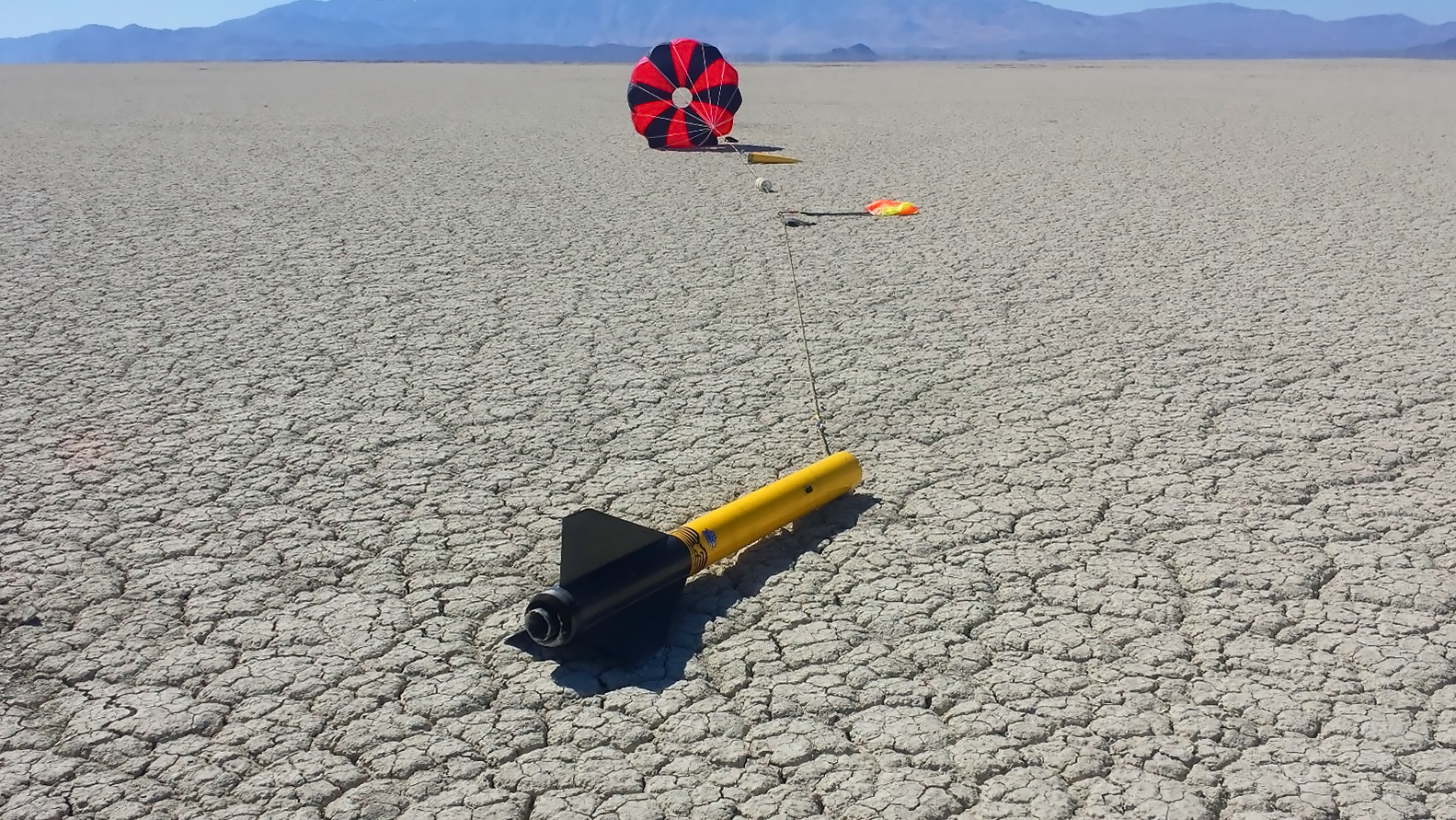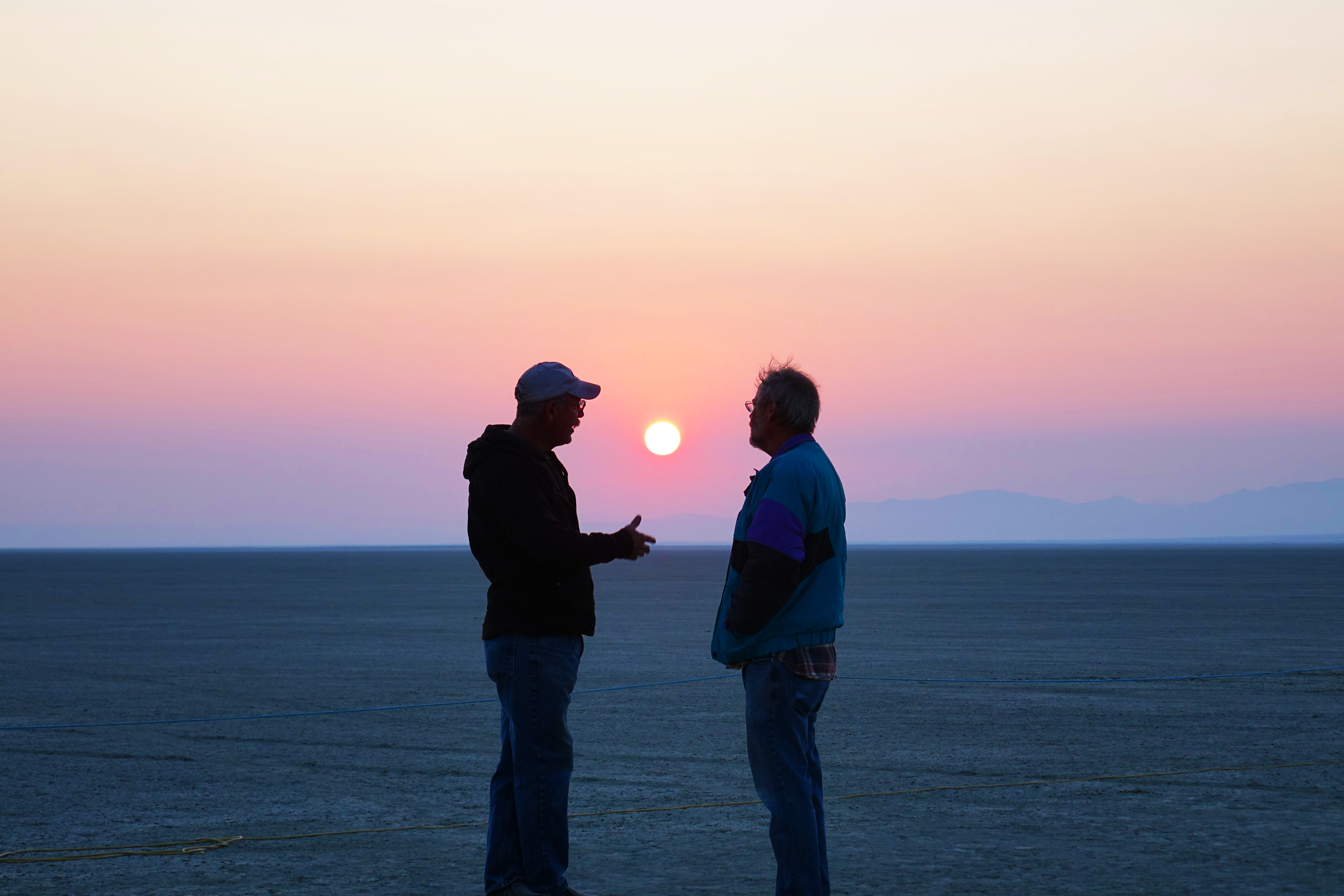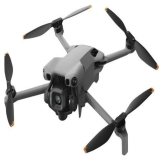
25 February 2023
By Jayne Engelgau
The drone industry is not slowing down anytime soon. Fruity Chutes has been in business for more than 15 years, 13 of which we have been directly involved in the drone industry. We have seen the boom, constant changes, failures, and successes. As many have already learned, drones make for a tough industry. There are periods of time where every week brings a new innovation or regulation, necessitating consistent active research to stay informed on pivotal matters. How a company responds to this new information is crucial. Through our own journey we have found that flexibility, maintaining values, customer support, and product quality are the keys to staying afloat as a business.
Conscientious Adaptation

Professionals working with UAS understand the need for being apprised of industry news. Accordingly, most industry workers read new information through the lens of their company, asking themselves questions about how their company’s operations may be affected.
Is this practice useful? Certainly. Can this be taken a step further? Yes, and it is worthwhile to do so.
Conscientious business models require thorough, complete action in all areas. Ask not just how your company’s enterprises could be affected but how your customers’ experiences may change. Make conscious predictions that consider the entire journey of your customers’ potential experiences interacting with and using the products and services of your company.
Will their ability to use your products or services be impacted in the short term or the (less considered) long term? Perhaps they’ll be able to buy your products with the same level of ease, but they may face operational hurdles months or years down the road due to delayed regulatory enforcement dates.
Aim to solve for these complications in advance. How can you modify your current products or services to solve potential obstacles? If modifying your offerings is not feasible, adjust your communication efforts to provide resources and educate your customers on how they can navigate any possible complications.
Maintaining this detailed level of follow-through is a fruitful practice that returns in the form of recommendations and genuine endorsements that increase brand awareness.
Facilitating Logistical and Conceptual Adaptation

Ensure your business plan allows for this level of flexibility. The sooner you can adapt and take action for the short-term and long-term needs of your customers, the better.
When Fruity Chutes was founded in 2007, we were making parachutes for rocketry recovery. Although our focus was centered around rocketry applications, we created our business model with an extensible framework: one that creates space for opportunities which are yet to be known. This means flexibility on all fronts, including logistical (such as manufacturing capabilities) and conceptual (readiness to learn) allowances for adaptation.
This became a major point of utility. After just two years in business, we received inquiries about drone recovery. We saw how our parachutes could be optimized for UAV applications, and we knew what deployment gear would best suit drone airframes. Noting this opportunity for growth, we dove into the required research and development. Our logistical flexibility facilitated exploration of these possibilities, and our conceptual flexibility made it possible to consider this opportunity in the first place.
Putting Action to Words on Customer Success

“Our customers’ success is our success.” This is one of our major philosophies and one that is shared by many other companies. It sounds intuitive enough; your customers are the foundation of your company’s existence. If they benefit from your offerings, they’ll support the continuation and growth of your business. However, this thoughtform is rarely so simple in actual practice.
In an industry which cultivates large financial opportunities, companies and investors can narrow their focus to short term profits. This can give way to a slippery slope where you lose sight of what your customer needs and start creating products in anticipation of profits. For some, this slope is gradual, slowly moving away from real, desired solutions. For others, the slope is steep, pushing to fabricate demand and popular perception of need.
This will not serve you in the long term. Creating products for your customers’ existing and forthcoming needs and addressing customer requests with honest interpersonal investment will serve you in the long run. This will even sometimes mean recommending a competitor's products because they are what a customer really needs. We have actually gained customers later down the line after we made a recommendation for another company’s product.
Resisting Swaying With Every Industry Development
Working in an ever-changing landscape, one can easily become swept up in the promises of new technologies and emerging applications. Switching gears and pursuing new enterprises can be a great sign of opportunity awareness and responsiveness. On the other hand, not every new venture is a good fit. It’s imperative to avoid a “yes-person” attitude. Eagerness can make for hasty decisions, and the desire to take on every opportunity can obscure your original goals. Know your company’s niche, and take care not to unsustainably overextend yourself or your resources.
Additionally, while listening and adapting to the needs of your customers and the industry is important, it is only worthwhile when aligned to your company’s mission and core values. If these are to be compromised by the proposed venture, continue on as you are. You can save the proposition in the “back pocket” of your mind in case you need ideas down the road.
There have been many times when we paused to consider requests or industrial changes and decided if it was in our best interest to adapt and change. For all the opportunities that have come our way, many have been a clear “yes” while others were best answered with “no.” For the times where we decided “no,” we have had zero regrets. We have also returned to some opportunities once conditions changed and the time was right.
Looking Ahead
The realm of UAS technology is exciting both to witness and to be a part of. These four principles have proven time and again to be effective methods for sustaining company growth. Applying them multiplies the longevity of your company, but it’s important to remember that they are not one-and-done solutions. They are practices, ones you must continuously uphold. It is essential to check in with all levels of a business’ employees and associated persons to ensure everyone is operating with a common understanding of these practices.
At Fruity Chutes, we do this on a regular basis in our team meetings. We currently see great development in drones for defense, racing, and transport of not just goods but people. For all of these sectors, we ask ourselves:
● How are our customers involved in these industries now? In the future?
● What changes would be required to incorporate their needs into our products and services?
● What is the viability of making these changes and maintaining them?
This process facilitates generation of ideas while uniting everyone onto a common path for setting and achieving goals.
Learn More
If you have any questions for us or would like to learn about what we do you can visit fruitychutes.com/home/about_us or email us at info@fruitychutes.com.












